The Wall Street Journal Guide to Investing in the Apocalypse: Make Money by Seeing Opportunity Where Others See Peril
$10.41
In The Wall Street Journal Guide to Investing in the Apocalypse, authors James Altucher and Douglas R. Sease provide investors with provocative and essential guidance that will enable them to take advantage of the lucrative investment opportunities that inevitably will arise when disaster strikes. The only book of its kind currently on the market, this indispensible handbook will help savvy investors make money by seeing opportunity where others see only peril.
Introduction:
At the heart of this book lies our observation that historically significant events—the assassination of a president or an arch-duke, an economic depression, or a global pandemic—have a significant, and observable, impact on investments. We believe that, in the face of apparent cataclysm, the professional traders and money managers, along with hordes of ordinary investors, will lose their nerve and desperately seek the safety of cash or even gold. The mad rush to sell will drive the prices of a broad array of securities and other assets far below any concept of fair value. Prices will reflect the investors’ assumption of the worst.
But what if the worst doesn’t occur? In that case all but the most shaken eventually will return to the financial and other markets. Their purchases will then drive asset prices higher, perhaps back to fair value or beyond. In any event, those who did not assume the worst and bought the assets all the others were selling will stand to profit handsomely as prices rebound. This is contrarian investing in the most basic sense. The opportunities don’t come along often, but when they do they can make a huge difference in investment performance for those with a steady hand, an analytic mind, and an optimistic outlook. We call this methodology “event-based investing,” and this book is a guide to mastering it.
What constitutes an event? In this book, we’ll use that term to refer to anything that threatens to upset the normal ebb and flow of markets and economies. Most people think of an event as something that occurs suddenly, such as the explosion of a terrorist bomb or a political assassination. But events can occur over much longer periods of time, ranging from days to years to decades. The Great Depression that plunged the United States into despair was an event, as was World War II, which saved the world from tyranny and reignited our nation’s economy at the same time. Viruses that cause pandemics may hover threateningly in the background for years before suddenly blossoming and doing their worst damage. Global warming scenarios will play out over decades.
Also, different events inspire different levels of fear. Terrorism touches off immediate fear, a pandemic creates gradually escalating levels of fear over a period of months and, at least for the moment, few people appear to be even the least bit worried about the looming global shortage of fresh water. How fast or slow an event occurs and what degree of fear it inspires doesn’t change the possibility of defending against it and perhaps profiting from it, only the time it takes to make a decision and act on it.
Event-based investing is not for everyone. It requires an ability to anticipate seemingly earth-shattering events and to measure the risks appropriately. It also insists that you think unemotionally about the consequences of both the anticipated event occurring and of the possibility that it won’t occur or that the consequences will not be as fearsome as others predict. In The Wall Street Journal Guide to Investing in the Apocalypse we purposely push the concept of event-based investing to the farthest edges of what might be possible. In the coming pages we will closely analyze several potential global threats, the probabilities of their occurring, and the opportunities they might present for the contrarian investor who doesn’t fall victim to hype and hysteria. Some of these events will be man-made: financial catastrophe, for example, stems from human actions. Others, such as pandemics, are rooted in nature. Some of the events we discuss are related: global warming and the coming shortage of clean fresh water have common roots in the burgeoning world population. And some are more likely to occur than others. The challenge for investors is how to get ahead of the curve now to reap profits in 2020 or beyond.
Contents:
- An Ill Wind: The Fundamentals of Apocalyptic Investing
- Pandemic!
- Nor Any Drop to Drink: The Emerging Fresh Water Crisis
- Tough Oil
- Is It Just Me, or Is It Getting Warmer? The Looming Threat of Global Warming
- Nothing to Fear but Fear Itself: The Threat of Terrorism
- Close Encounters with the Death Star
- Game Over! The End of Capitalism
The Wall Street Journal Guide to Investing in the Apocalypse: Make Money by Seeing Opportunity Where Others See Peril By James Altucher, Douglas R. Sease pdf
| Author(s) | |
|---|---|
| Format | |
| Pages | 109 |
| Publication Year | 2011 |
16 reviews for The Wall Street Journal Guide to Investing in the Apocalypse: Make Money by Seeing Opportunity Where Others See Peril
Only logged in customers who have purchased this product may leave a review.


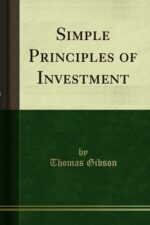
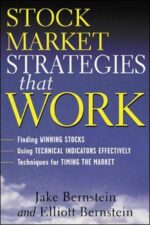

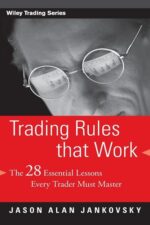
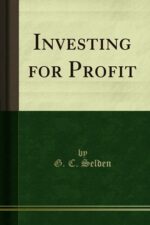
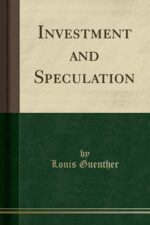
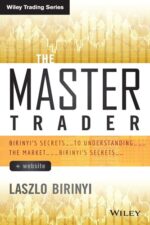
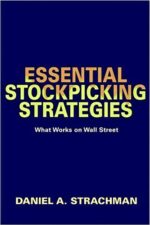
Deandre Acevedo (verified owner) –
I absolutely love James’ blog, so I knew I’d love his book, too. Sharp, witty and funny. An amazing writer.
George Peterson (verified owner) –
Yes this book is going to rock, I can tell from the cover alone. I haven’t purchased it yet because like most astute investors, I’m waiting for the price to bottom before going all in. Why pay $9 something new when the current used price is around $7 and likely to go to $5? Heck I’m looking for an entry in the high $4’s with a tight stop and an excellent RR ratio! I’m holding out for cheapies! I’ve been reading James’ blog and consider it interesting and refreshing stuff. I like his style and relate to the life experience he shares. “…Investing in the Apocalypse…” says it all; as a fellow Trader part of my daily plan is to profit from other traders pain. Can’t wait to read it!
Caroline Munoz (verified owner) –
Altucher and Sease have done the world a service with this great book. Its an easy to read (and use guide) to how to invest when the world is going to pot.
Its true that to some it may seem unseemly to invest in companies likely to profit in the event of a disaster. It shouldn’t be. It’s what smart investors have done forever. And who better than a veteran investor (Altucher) and a well-respected financial journalist (Sease)? They written a short snappy book that won’t leave your head spinning with financial mumbo jumbo and may leave your better equipped to navigate the investing landscape.
If it still leaves you feeling queezy about say, investing in Caterpillar stock after an earthquake, then you can donate your profits to the relevant charities.
Sean Avery (verified owner) –
I thoroughly enjoyed the book, and made copious notes throughout. This is a book I’ll refer to during the inevitable catastrophes. I’ve been dealing with a difficult investing environment for a couple years, and appreciate a book that explains how to make money when everyone else is selling. James tells the brave investor to Fade-the-Fear. Generally disasters usually aren’t that bad, and people from the ordinary investor to the money managers follow the herd and overreact. Generally selling. James lists several inevitable circumstances that will cause wide spread panic, and even specific companies that will profit from these events. I found the book well reasoned, well written, and contains valuable advice, so I gave it 5 stars.
Zain Stevens (verified owner) –
This book teaches you, yes you, how to profit from the end of all things. Originally printed under the name “Book of Revelations”, this current edition has been updated with new fangled lingo such as “markets” and “investing”. The chapters discuss topics such as how to working with riders of the apocalypse, avoiding the beast from the seas, and look out, locusts!
Great investing ideas include “fresh water”, “earthquake proof homes”, and “emergency lighting”. Don’t burn – learn!
Katelyn Powers (verified owner) –
As opposed to assuming we all have a doctorate in economics 🙂 It’s worth your time, regardless of your knowledge base.
Arielle Mullins (verified owner) –
I have found myself scared by the media many, many times, and I realize that the fears are just created to sell newspapers, or promote webpages, which is fine, is just that we do not really need to panic over them. For example, the “pademics”, or, “Greece”, where are they now? a while back it seemed like it was the end of the world, it wasn’t.
A new paradigm is emerging in which as a society we are beginning to think differently, to stop for a moment and think for ourselves, and sometimes even turn off the television set all together. Altucher is one of those cutting edge authors whom I admire because he is constantly thinking outside of the box, as in: “what box”?
I found the book right on target in its approach to do three things in the face of media-panic A) eliminate the fear, i.e.: do not buy into the hype of the media, they are doing their job, but we do not need to stop breathing and run around like chickens without heads just because they want to sell newspapers. B) utilize the front door or conventional approach to investment. I.e.: in the case of pandemics (there are many ohter chapters), they are likely to re-occur, and no, it will not be the end of the world. So it is worth looking into the companies that work on providing vaccines, and C) utilize the back door approach to investment which involves stocks in companies that have multiple products lines, onlue one of which is aimed at curing or preventing the cause of the pandemic.
The book has plenty of examples, and charts on each topic.
Allen Velez (verified owner) –
…where he meanders from topic to topic with little apparent rhyme or reason…also, his history makes one wonder just how just how successful an investor he has been in the past…he is currently CEO of a company called “Formcap” which trades in the pink sheets for a penny a share and whose assets consist mostly of a miniscule oil/gas lease…and last year he sold all of his investment in something called “Beauty Brands” for a penny a share…and on his blog, he admits to having invested in something called “212 Ventures” which went bankrupt…indeed, I can’t find ANY record of successful investing on his part ANYWHERE…allegedly, he is president of “Stockpickr LLC” — a subsidiary of “thestreet.com” — and runs a website where people trade stock ideas…obviously, that doesn’t lend much credibility to his opinions about investing…I really can’t find sufficient data to support giving up time or money for any of his publications…
…I’m adding this about six weeks later…I suggest potential buyers do their own vetting first…I spent quite a bit of time researching the author’s background but could find no credible evidence of his ever having managed money, much less having successfully managed money…the best I can find is that he got a degree in computer science…he started graduate work but apparently quit (wikpedia says he has a masters in computer science from Carnigie Mellon but a search of their graduates didn’t turn up anything)…he then started a website which he sold to thestreet.com…he then became, basically, a “commentator/pundit” who writes articles that appear on various sites on the web…he has attempted some venture capital type investments with no record of success that I can document…he engaged me in an exchange here (see comments) and challenged ME to document his success — even though HE is the one trying to sell the book…he referred me to his various articles about about stocks that he has supported in the past…however, I don’t consider picking a few “winners” to qualify as sufficient evidence to support an argument of investment success…so I suggest everyone do their own “due diligence” before buying and/or taking any advice from this book…
Megan Medina (verified owner) –
Well I havent actually read the book and most probably never will.
But here’s the author saying he never did, too, and never will. Didnt even write it 🙂
Reginald Norris (verified owner) –
I think by and large this Journal Guide was misleading and because of this I will not order any promoted items in the future from what I consider a neutral site.
Justin Wyatt (verified owner) –
I really feel that these gentlemen hit the nail on the head. They may teach one to be an “ambulance chaser” and invest in vices etc. But the teach the cruel hard facts of where to position oneself during a catastrophe. Also, this book may have gotten lower reviews because folks never want to hear that bad things are imminent. They know what they are doing. The are right on with where and how they are directing folks in order to benefit. I read this in 2008 or so, and I recommend it again now. Now go buy (and invest) in your toilet paper for the Covid-19 rush. (Kidding….or am I?)
Best wishes and prayers of protection over all of us.
Hugo Hancock (verified owner) –
As advertised.
Ashlynn Shah (verified owner) –
very good very good,product was of good value and the quality is also very good, if i need another i will consider this source again
Liberty Swanson (verified owner) –
Helpful information on investing under disaster conditions. While most people do not want to profit from another person’s misery, money will be made addressing the aftermath and righting the situation or preventing disasters. For example the rebuilding after Sandy. This book gives you some possible companies that will benefit from changing global conditions such as global warming.
Katherine Reyna (verified owner) –
I saw this book advertised in the Wall Street Journal and downloaded a sample. I was very impressed with what I saw in the introduction. The author promised to show how to develop effective strategies on investing in the face of calamities and disasters. He promised that he would not just recommend individual stocks, because that would cause the book to become dated quickly.
So, based on this promise, I paid my money and got the entire book. Apparently, who ever wrote the intro never really read the book. Worse yet, if the author of the book also wrote the intro, he forgot what he promised. At any rate, after promising not to just recommend individual stocks, he does just that. Worse yet, he continually recommends a small group of his favorites. There is a lot of verbiage on creating baskets of stock but no details on how to do that.
What put me over the top was his adamant defense of global warming. Whether you believe it or not is irrelevant. To create an investment strategy that discounts the possibility that global warming will not pan out is risky. To recommend an investment strategy that does not allow for the possibility that the tide will turn is irresponsible.
This book was a great disappointment to me, and I suggest you not waste your money buying it, or your time reading it. The author does not deliver serious investment strategy as he promised.
Corbin Cain (verified owner) –
I thought the book was interesting. It is a pretty easy read, really intended for more beginner investors so if you want to stay away complicated graphs & formulas then this would be a book you would want to read. I’ve always been fascinated by apocalyptic events and I help people with their finances so maybe that is why I thought this was an interesting book. If you enjoy investing then give it a read.